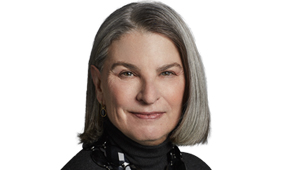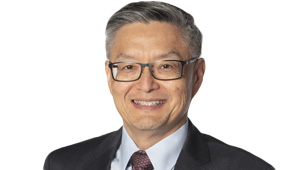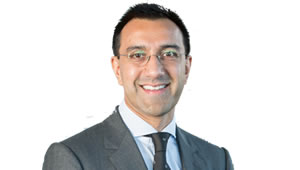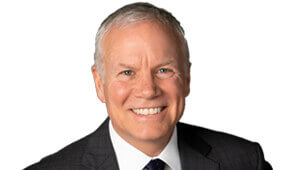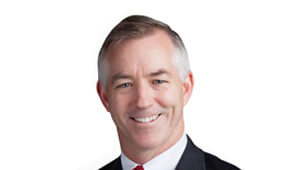Pfizer Inc.: Difference between revisions
(Added Pfizer Financials) |
No edit summary |
||
| Line 416: | Line 416: | ||
|83,000.00 | |83,000.00 | ||
|} | |} | ||
==Market == | |||
===Total addressable market size:=== | |||
Research shows that approximately 95% of the world has health issues or problems [https://www.sciencedaily.com/releases/2015/06/150608081753.htm#:~:text=Over%2095%25%20of%20the%20world's,than%20five%20ailments%20%2D%2D%20ScienceDaily]. Currently, the world population is at 7.8 billion people. This means that 95% of 7.8 billion people is 7 billion, 410 and million is the addressable market size [https://www.sciencedaily.com/releases/2015/06/150608081753.htm#:~:text=Over%2095%25%20of%20the%20world's,than%20five%20ailments%20%2D%2D%20ScienceDaily]. | |||
According to Statista, the global pharmaceutical industry had an annual revenue of $1.42 trillion in 2021 [https://pharmanewsintel.com/features/comparing-global-pharmaceutical-markets-the-us-uk-and-china#:~:text=According%20to%20Statista%2C%20the%20global,and%20the%20COVID%2D19%20pandemic.]. | |||
In terms of market share, Pfizer held 5% of the world's prescription drug market in 2019 [https://www.statista.com/statistics/309425/prescription-drugs-market-shares-by-top-companies-globally/#:~:text=Pfizer%20held%20five%20percent%20of,the%20global%20market%20until%202026.]. | |||
=== Serviceable addressable market size:=== | |||
Here, the total addressable market size is the patient population that was treated with Pfizer vaccines and medicines. This is estimated to be about 1.3 billion patients around the world [https://www.pfizer.com/sites/default/files/investors/financial_reports/annual_reports/2022/files/Pfizer_Annual_Review.pdf] | |||
In 2022, the industry is expected to generate 1.14 trillion U.S. dollars in prescription drug revenue worldwide ([https://www.statista.com/statistics/309387/global-total-prescription-drug-revenue-projection/#:~:text=In%202022%2C%20the%20industry%20is,the%20treatment%20of%20rare%20diseases.]. | |||
===Serviceable Obtainable Market:=== | |||
The healthcare industry is worth $808 billion in the United States as of 2021 [https://www.crossrivertherapy.com/healthcare-industry-statistics#:~:text=The%20healthcare%20industry%20is%20worth,revenue%20comes%20from%20patient%20care.]. | |||
==Competition== | |||
Despite Pfizer being the leading companies in the biotechnology and pharmaceutical industry, several other large, global drug manufacturers are in competition with Pfizer. These companies include Johnson and Johnson, Roche Holding AG, Novo Nordisk, Merck and Co, AbbVie Inc, and Eli Lilly and Co. | |||
In FY 2022, Pfizer made $31.37 billion in net income out of $100.33 billion in annual revenue. The company's market capitalization was $227 billion as of market close on March 24, 2023 [https://s28.q4cdn.com/781576035/files/doc_financials/2022/ar/PFE-2022-Form-10K-FINAL-%28without-Exhibits%29.pdf]. Market cap is used to determine a company's size and then evaluate the company's financial performance to other companies of various sizes. In investing, companies with larger market capitalizations are often safer investments as they represent more established companies with generally longer history in business carrying less risk than small-cap companies. | |||
# Johnson and Johnson: | |||
*Market cap: $423 billion | |||
*FY 2022 Revenue: $95 billion | |||
*FY 2022 Net income: $17.9 billion | |||
*Top drug by revenue (FY 2022): Darzalex | |||
*Revenue from top drug (FY 2022): $7.9 billion [https://www.investor.jnj.com/asm/2022-annual-report] | |||
Johnson and Johnson is known for its health products, pharmaceuticals and medical devices. | |||
2. Novo Nordisk A/S (NVO): | |||
*Market cap: $349 billion [https://www.investopedia.com/markets/quote?tvwidgetsymbol=NVO] | |||
*FY 2022 Revenue: $43.5 billion | |||
*FY 2022 Net income: $16.9 billion | |||
*Top drug by revenue (FY 2022): Ozempic | |||
*Revenue from top drug (FY 2022): $5.7 billion [https://www.novonordisk.com/investors/financial-results.html#results2023] | |||
Novo Nordisk is a Norweigan pharmaceutical company that focuses on treating diabetes, obesity and other serious chronic diseases and conditions. Ozempic was Novo Nordisk's top selling drug in 2022 which is an insulin therapy delivered by injection. | |||
3. Eli Lilly and Co: | |||
*Market cap: $440 billion [https://www.investopedia.com/markets/quote?tvwidgetsymbol=LLY] | |||
*FY 2022 Revenue: $28.5 billion | |||
*FY 2022 Net income: $6.2 billion | |||
*Top drug by revenue (FY 2022): Trulicity | |||
*Revenue from top drug (FY 2022): $5.7 billion [https://investor.lilly.com/static-files/2f9b7bb1-f955-448d-baa2-c4343d39ee62] | |||
Eli Lilly is a global drug manufacturing company which focuses on discovering, developing, manufacturing and marketing human pharmaceutical products. The company's top selling drug in FY 2022 was Trulicity which is used to treat type 2 diabetes. | |||
4. Abbvie Inc. | |||
*Market Cap: $242 billion [https://www.investopedia.com/markets/quote?tvwidgetsymbol=ABBV] | |||
*FY 2022 Revenue: $58.1 billion | |||
*FY 2022 Net Income: $11.8 billion | |||
*Top Drug by Revenue (FY 2022): Humira | |||
*Revenue from Top Drug (FY 2022): $18.6 billion ([https://investors.abbvie.com/static-files/e3047152-75b3-44b3-95a8-18e4fa991768] | |||
AbbVie is a global biopharmaceutical company engaged in research and development, manufacturing, commercializing and selling innovation medicines and therapies. Its medical products span a range of healthcare-related areas such as immuology, oncology, neuroscience, etc. | |||
5. Merck and Co. Inc | |||
*Market Cap: $289 billion | |||
*FY 2022 Revenue: $59.3 billion | |||
*FY 2022 Net Income: $16.4 billion | |||
*Top Drug by Revenue (FY 2022): Keytruda | |||
*Revenue from Top Drug (FY 2022): $20.9 billion [https://s21.q4cdn.com/488056881/files/doc_financials/2022/ar/b390be48-92bf-4595-96da-ac5cd7c3d92e-%281%29.pdf] | |||
The company offers prescription medicines, vaccines, biologic therapies, and animal health products. Its two operating segments are pharmaceutical and animal health. | |||
Overall, Pfizer's largest competitor is Johnson and Johnson. Johnson and Johnson may not generate the same amount of revenue from its products but its market cap and total revenue make it a strong competitor. | |||
That being said, Pfizer is different from other companies because Pfizer continually emphasises innovation and its multi-billion dollar investment in R and D results in a strong and differentiated product pipeline. The organizational effectiveness of the company is constantly improving by continuously educating patients, physicians, payers and global health authorities on the benefits and risks of medicines and vaccines. Pfizer continues to evaluate, adapt and improve the organisation and business practice in order to meet customer and public needs. Pfizer establishes a "first-to-market" for biosimilar products to provide customers a lower-cost alternative immediately when available as well as providing the company with higher sales and profitability until other competititors enter the market. Pfizer's intellectual property and continuous medicine development are its competitive advantages over other companies [https://www.investopedia.com/ask/answers/052015/who-are-pfizers-pfe-main-competitors.asp]. | |||
__INDEX__ | __INDEX__ | ||
Revision as of 16:35, 6 July 2023
Summary
Pfizer Inc. discovers, develops, manufactures, markets, distributes, and sells biopharmaceutical products worldwide. It offers medicines and vaccines in various therapeutic areas, including cardiovascular metabolic and women's health under the Premarin family and Eliquis brands; biologics, small molecules, immunotherapies, and biosimilars under the Ibrance, Xtandi, Sutent, Inlyta, Retacrit, Lorbrena, and Braftovi brands; and sterile injectable and anti-infective medicines, and oral COVID-19 treatment under the Sulperazon, Medrol, Zavicefta, Zithromax, Vfend, Panzyga, and Paxlovid brands. The company also provides medicines and vaccines in various therapeutic areas, such as pneumococcal disease, meningococcal disease, tick-borne encephalitis, and COVID-19 under the Comirnaty/BNT162b2, Nimenrix, FSME/IMMUN-TicoVac, Trumenba, and the Prevnar family brands; biosimilars for chronic immune and inflammatory diseases under the Xeljanz, Enbrel, Inflectra, Eucrisa/Staquis, and Cibinqo brands; and amyloidosis, hemophilia, and endocrine diseases under the Vyndaqel/Vyndamax, BeneFIX, and Genotropin brands. In addition, the company is involved in the contract manufacturing business. It serves wholesalers, retailers, hospitals, clinics, government agencies, pharmacies, and individual provider offices, as well as disease control and prevention centers. The company has collaboration agreements with Bristol-Myers Squibb Company; Astellas Pharma US, Inc.; Myovant Sciences Ltd.; Akcea Therapeutics, Inc; Merck KGaA; Valneva SE; BioNTech SE; and Arvinas, Inc. Pfizer Inc. was founded in 1849 and is headquartered in New York, New York.
Product Portfolio:
Pfizer's product portfolio encompasses a wide range of prescription medicines, vaccines, and consumer healthcare products. The company is known for its pioneering research and development efforts, resulting in breakthrough treatments for numerous diseases. Notable products include Lipitor (cholesterol-lowering medication), Viagra (erectile dysfunction treatment), and Prevnar (pneumococcal vaccine). Pfizer's robust product pipeline reflects its commitment to innovation and addresses various unmet medical needs.
Operations:
Pfizer's operations are characterised by a global footprint and a strong focus on quality, safety, and compliance. The company operates numerous manufacturing facilities and research centers worldwide, ensuring efficient production and continuous advancement in scientific research. Pfizer's supply chain management is crucial in ensuring timely delivery of its products to healthcare providers and patients. The company emphasizes operational excellence and employs rigorous quality control measures to maintain the highest standards.
Team Dynamics:
Pfizer boasts a diverse and talented team of researchers, scientists, clinicians, and professionals across various functions. Collaboration and cross-functional teamwork are emphasized, fostering a culture of innovation and knowledge sharing. Pfizer's team comprises individuals with diverse backgrounds, expertise, and perspectives, facilitating the development of groundbreaking solutions. The company promotes a supportive and inclusive work environment, enabling employees to thrive and contribute to Pfizer's success.
Executive Team:
Albert Bourla serves as the Chairman and CEO of Pfizer, leading the company in its mission to make breakthroughs that positively impact patients' lives by driving scientific and commercial innovation in healthcare. With over 30 years of experience at Pfizer, he has held senior positions across diverse markets and disciplines, gaining a global perspective on patient needs and healthcare systems. Albert has a strong commitment to ensuring equitable access to medicines and vaccines worldwide. Since becoming CEO in 2019, he has accelerated Pfizer's transformation into a science-driven and innovative company, increasing investment in R&D and digital innovation. Under his leadership, Pfizer has embodied its core values of courage, excellence, equity, and joy. Notably, during the COVID-19 pandemic, Albert led Pfizer's remarkable response, investing billions of dollars to develop a safe and effective vaccine in record time. The company also delivered the first FDA-authorized oral antiviral treatment for COVID-19. Albert has further strengthened Pfizer's commitment to Environmental, Social, and Governance (ESG) principles and has been recognized for his leadership and achievements in the healthcare industry. He holds a Doctor of Veterinary Medicine and a Ph.D. in the Biotechnology of Reproduction. Albert is actively involved in various organizations and serves on multiple boards, contributing to the advancement of global healthcare and business.
Sally Susman holds the position of Executive Vice President and Chief Corporate Affairs Officer at Pfizer. In her role, she is responsible for engaging with Pfizer's external stakeholders and overseeing various areas, including communications, corporate responsibility, global policy, government relations, investor relations, and patient advocacy. Sally also serves as the vice chair of the Pfizer Foundation and co-chair of Pfizer's Political Action Committee. Prior to joining Pfizer in 2007, Sally held senior positions in communications and government relations at Estée Lauder Companies and the American Express Company. She also has a background in government service, where she focused on international trade issues for eight years. Sally's involvement extends beyond Pfizer, as she serves on the board of UL Solutions, a global leader in applied safety science, and co-chairs the board of The International Rescue Committee. Additionally, she is a member of the Council on Foreign Relations.
Payal Sahni holds the role of Executive Vice President and Chief People Experience Officer at Pfizer, responsible for overseeing the global talent strategy, diversity and inclusion efforts, total rewards, and colleague experience. With a career spanning over two decades at Pfizer, she has held various HR leadership positions, including Senior Vice President of Human Resources for Pfizer Biopharmaceuticals Group, where she led HR strategy for multiple business units and corporate functions. Payal has played a vital role in managing HR strategy during mergers and acquisitions, spearheading transformations, and supporting Pfizer's evolving business structure. She holds a Bachelor of Arts in Psychology from Rider University and a Master of Arts in Psychology from Fairleigh Dickinson University.
William Pao, M.D., Ph.D., serves as the Chief Development Officer and Executive Vice President at Pfizer. In his role, he leads the Global Product Development organization, which is responsible for advancing Pfizer's pipeline of innovative medicines across various therapeutic areas, including inflammation and immunology, internal medicine, anti-infectives, oncology, and rare diseases. William has an impressive background in translational medicine, targeted cancer therapeutics, and personalized medicine. Prior to joining Pfizer, he held leadership positions at Roche, where he oversaw the discovery and early development of a diverse portfolio of therapeutic candidates. William's groundbreaking research has contributed to our understanding of lung cancer and other malignancies, and he has been recognized for his contributions to cancer genomics and personalized medicine. He has published extensively and served as an advisor to notable medical associations and research journals. William holds undergraduate and doctoral degrees from Harvard and Yale University, respectively, and has completed his medical training and oncology fellowship at New York-Presbyterian Hospital/Weill-Cornell Medical School and Memorial Sloan-Kettering Cancer Center.
Mike McDermott serves as the Chief Global Supply Officer and Executive Vice President at Pfizer. In his role, he leads the Pfizer Global Supply (PGS) team, responsible for overseeing the company's internal and external manufacturing and supply chain activities. Mike and his team ensure the continuous supply of Pfizer's extensive product portfolio, including medicines and vaccines distributed to over 185 countries worldwide. The PGS network consists of 36 global manufacturing sites and approximately 31,000 colleagues, working together with over 300 contract manufacturers to produce around 50 billion doses annually. With over 30 years of industry experience, Mike joined Pfizer in 1989 and has held various positions in divisions such as Consumer Healthcare, Biotechnology, Supply Chain, Finance, and Marketing. He became the President of PGS in 2018 and assumed his current role in 2022. In addition to his professional endeavors, Mike is a passionate advocate for Diversity, Equity, and Inclusion, implementing impactful changes within PGS and serving as the Executive Sponsor of Pfizer's Women's Resource Group. Mike holds Bachelor of Science and Master of Science degrees in Industrial Engineering from the New Jersey Institute of Technology. Mike serves on the Executive Committee of the National Association of Manufacturers and is a member of the Pharmaceutical Manufacturers Forum.
Aamir Malik holds the position of Executive Vice President and Chief Business Innovation Officer at Pfizer. In this role, he is responsible for shaping the company's strategy, business development, commercial development, portfolio management, pipeline prioritization, and the establishment of new business ventures. Before joining Pfizer, Aamir served as the Managing Partner of McKinsey & Company's United States operations and led the Global Pharmaceutical and Medical Products Practice at the firm. With 25 years of experience at McKinsey, Aamir has contributed to the development of innovative growth strategies, facilitated mergers and acquisitions, and implemented impactful programs to enhance patient outcomes and improve performance in the life science industry. He has advised numerous Boards, CEOs, and top management teams in the field. Aamir holds a Bachelor of Science degree in Finance from Indiana University and is an active advocate for improving the lives of individuals with food allergies.
Doug Lankler has been a part of Pfizer since 1999 and currently holds the position of general counsel. Before assuming this role, Doug served as Pfizer's chief compliance and risk officer starting in 2006. Prior to joining Pfizer, he worked at the United States Department of Justice as an Assistant U.S. Attorney in the Southern District of New York. Doug's exceptional service in this role earned him the United States Attorney General's Distinguished Service Award. He obtained his education from the State University of New York at Albany and Cornell Law School.
Rady Johnson holds the position of Executive Vice President and Chief Compliance, Quality, and Risk Officer at Pfizer. In this role, he has overall responsibility for the company's global compliance program, Regulatory Quality Assurance organization, global security efforts, and Office of the Ombuds. Since joining Pfizer in 1994, Rady has held various leadership positions, including leading the Regulatory Law practice group, Corporate Regulatory and Healthcare Law Audit functions, and establishing the Legal Division's Global Products Counsel practice group. He also served as Senior Vice President and Associate General Counsel for the innovative segments of Pfizer's Worldwide Biopharmaceuticals Business. Before joining Pfizer, Rady worked in private practice with the law firm of Hogan & Hartson, specializing in food and drug law. He previously worked as a Certified Public Accountant at Arthur Anderson, focusing on the healthcare and hospitality industries. Rady is a graduate of the University of Richmond and the Georgetown University Law Center.
Financials
Historic
Most recent quarter
Most recent year
Historic financials
| 12 Months Ending | 12/31/2006 | 12/31/2007 | 12/31/2008 | 12/31/2009 | 12/31/2010 | 12/31/2011 | 12/31/2012 | 12/31/2013 | 12/31/2014 | 12/31/2015 | 12/31/2016 | 12/31/2017 | 12/31/2018 | 12/31/2019 | 12/31/2020 | 12/31/2021 | 12/31/2022 |
|---|---|---|---|---|---|---|---|---|---|---|---|---|---|---|---|---|---|
| Revenue, GAAP | 48,371.00 | 48,418.00 | 48,296.00 | 49,934.00 | 67,039.00 | 65,259.00 | 54,657.00 | 51,452.00 | 49,605.00 | 48,851.00 | 52,824.00 | 52,546.00 | 53,647.00 | 40,905.00 | 41,908.00 | 81,288.00 | 100,330.00 |
| Net Income, GAAP | 19,337.00 | 8,144.00 | 8,104.00 | 8,635.00 | 8,257.00 | 10,009.00 | 14,570.00 | 22,003.00 | 9,135.00 | 6,960.00 | 7,215.00 | 21,308.00 | 11,153.00 | 16,026.00 | 9,616.00 | 21,979.00 | 31,372.00 |
| Margin % | 40 | 16.8 | 16.8 | 23.2 | 17.7 | 19.7 | 22.3 | 23.5 | 23.1 | 21.4 | 24.4 | 23.7 | 25.2 | 17.4 | 23.9 | 27.7 | 35.4 |
| Total assets | 115,546.00 | 115,268.00 | 111,148.00 | 212,949.00 | 195,014.00 | 188,002.00 | 185,798.00 | 172,101.00 | 167,566.00 | 167,381.00 | 171,615.00 | 171,797.00 | 159,422.00 | 167,594.00 | 154,229.00 | 181,476.00 | 197,205.00 |
| EV/EBITDA | 8.43 | 7.08 | 5.12 | 10.66 | 7.09 | 7.46 | 8.2 | 9.28 | 10.48 | 12.68 | 12.48 | 12.03 | 13.38 | 12.46 | 17.56 | 13.63 | 7.48 |
| Average | 9.28 | 8.05 | 5.93 | 4.77 | 9.91 | 7.71 | 7.89 | 9.02 | 9.16 | 11.14 | 12.74 | 12.83 | 12.71 | 12.09 | 11.83 | 19.82 | 11.54 |
| High | 10.29 | 9.03 | 7.62 | 10.66 | 11.58 | 8.41 | 8.75 | 9.99 | 10.5 | 12.67 | 14.26 | 13.87 | 14.56 | 13.46 | 17.54 | 27.97 | 13.08 |
| Low | 8.09 | 6.78 | 4.27 | 3.27 | 7.09 | 6.7 | 7.26 | 8.33 | 8.34 | 10.17 | 11.32 | 11.99 | 11.22 | 10.43 | 9.65 | 13.61 | 7.48 |
| Price to Book Ratio | 2.59 | 2.37 | 2.08 | 1.63 | 1.6 | 2 | 2.25 | 2.57 | 2.75 | 3.08 | 3.31 | 3.04 | 3.94 | 3.43 | 3.24 | 4.3 | 3.01 |
| Return on Common Equity | 28.26 | 11.96 | 13.24 | 11.71 | 9.29 | 11.78 | 17.83 | 27.94 | 12.38 | 10.24 | 11.61 | 32.58 | 16.56 | 25.33 | 15.22 | 31.3 | 36.3 |
| Total Debt to Total Equity | 11.17 | 20.18 | 29.93 | 53.8 | 49.86 | 47.13 | 45.86 | 47.62 | 51.22 | 59.85 | 70.33 | 60.69 | 65.47 | 84.24 | 65.02 | 53.44 | 40.71 |
| Shares | |||||||||||||||||
| Last Price | 24.55 | 21.55 | 16.79 | 17.24 | 16.6 | 20.51 | 23.77 | 29.04 | 29.53 | 30.6 | 30.79 | 34.33 | 41.38 | 37.14 | 36.81 | 59.05 | 51.24 |
| Dividends per Share | 0.96 | 1.16 | 1.28 | 0.8 | 0.72 | 0.8 | 0.88 | 0.96 | 1.04 | 1.12 | 1.2 | 1.3 | 1.38 | 1.46 | 1.53 | 1.57 | 1.6 |
| Employes | 98,000.00 | 86,600.00 | 81,800.00 | 116,500.00 | 110,600.00 | 103,700.00 | 91,500.00 | 77,700.00 | 78,300.00 | 97,900.00 | 96,500.00 | 90,200.00 | 92,400.00 | 88,000.00 | 78,500.00 | 79,000.00 | 83,000.00 |
Market
Total addressable market size:
Research shows that approximately 95% of the world has health issues or problems [1]. Currently, the world population is at 7.8 billion people. This means that 95% of 7.8 billion people is 7 billion, 410 and million is the addressable market size [2].
According to Statista, the global pharmaceutical industry had an annual revenue of $1.42 trillion in 2021 [3].
In terms of market share, Pfizer held 5% of the world's prescription drug market in 2019 [4].
Serviceable addressable market size:
Here, the total addressable market size is the patient population that was treated with Pfizer vaccines and medicines. This is estimated to be about 1.3 billion patients around the world [5]
In 2022, the industry is expected to generate 1.14 trillion U.S. dollars in prescription drug revenue worldwide ([6].
Serviceable Obtainable Market:
The healthcare industry is worth $808 billion in the United States as of 2021 [7].
Competition
Despite Pfizer being the leading companies in the biotechnology and pharmaceutical industry, several other large, global drug manufacturers are in competition with Pfizer. These companies include Johnson and Johnson, Roche Holding AG, Novo Nordisk, Merck and Co, AbbVie Inc, and Eli Lilly and Co.
In FY 2022, Pfizer made $31.37 billion in net income out of $100.33 billion in annual revenue. The company's market capitalization was $227 billion as of market close on March 24, 2023 [8]. Market cap is used to determine a company's size and then evaluate the company's financial performance to other companies of various sizes. In investing, companies with larger market capitalizations are often safer investments as they represent more established companies with generally longer history in business carrying less risk than small-cap companies.
- Johnson and Johnson:
- Market cap: $423 billion
- FY 2022 Revenue: $95 billion
- FY 2022 Net income: $17.9 billion
- Top drug by revenue (FY 2022): Darzalex
- Revenue from top drug (FY 2022): $7.9 billion [9]
Johnson and Johnson is known for its health products, pharmaceuticals and medical devices.
2. Novo Nordisk A/S (NVO):
- Market cap: $349 billion [10]
- FY 2022 Revenue: $43.5 billion
- FY 2022 Net income: $16.9 billion
- Top drug by revenue (FY 2022): Ozempic
- Revenue from top drug (FY 2022): $5.7 billion [11]
Novo Nordisk is a Norweigan pharmaceutical company that focuses on treating diabetes, obesity and other serious chronic diseases and conditions. Ozempic was Novo Nordisk's top selling drug in 2022 which is an insulin therapy delivered by injection.
3. Eli Lilly and Co:
- Market cap: $440 billion [12]
- FY 2022 Revenue: $28.5 billion
- FY 2022 Net income: $6.2 billion
- Top drug by revenue (FY 2022): Trulicity
- Revenue from top drug (FY 2022): $5.7 billion [13]
Eli Lilly is a global drug manufacturing company which focuses on discovering, developing, manufacturing and marketing human pharmaceutical products. The company's top selling drug in FY 2022 was Trulicity which is used to treat type 2 diabetes.
4. Abbvie Inc.
- Market Cap: $242 billion [14]
- FY 2022 Revenue: $58.1 billion
- FY 2022 Net Income: $11.8 billion
- Top Drug by Revenue (FY 2022): Humira
- Revenue from Top Drug (FY 2022): $18.6 billion ([15]
AbbVie is a global biopharmaceutical company engaged in research and development, manufacturing, commercializing and selling innovation medicines and therapies. Its medical products span a range of healthcare-related areas such as immuology, oncology, neuroscience, etc.
5. Merck and Co. Inc
- Market Cap: $289 billion
- FY 2022 Revenue: $59.3 billion
- FY 2022 Net Income: $16.4 billion
- Top Drug by Revenue (FY 2022): Keytruda
- Revenue from Top Drug (FY 2022): $20.9 billion [16]
The company offers prescription medicines, vaccines, biologic therapies, and animal health products. Its two operating segments are pharmaceutical and animal health.
Overall, Pfizer's largest competitor is Johnson and Johnson. Johnson and Johnson may not generate the same amount of revenue from its products but its market cap and total revenue make it a strong competitor.
That being said, Pfizer is different from other companies because Pfizer continually emphasises innovation and its multi-billion dollar investment in R and D results in a strong and differentiated product pipeline. The organizational effectiveness of the company is constantly improving by continuously educating patients, physicians, payers and global health authorities on the benefits and risks of medicines and vaccines. Pfizer continues to evaluate, adapt and improve the organisation and business practice in order to meet customer and public needs. Pfizer establishes a "first-to-market" for biosimilar products to provide customers a lower-cost alternative immediately when available as well as providing the company with higher sales and profitability until other competititors enter the market. Pfizer's intellectual property and continuous medicine development are its competitive advantages over other companies [17].

